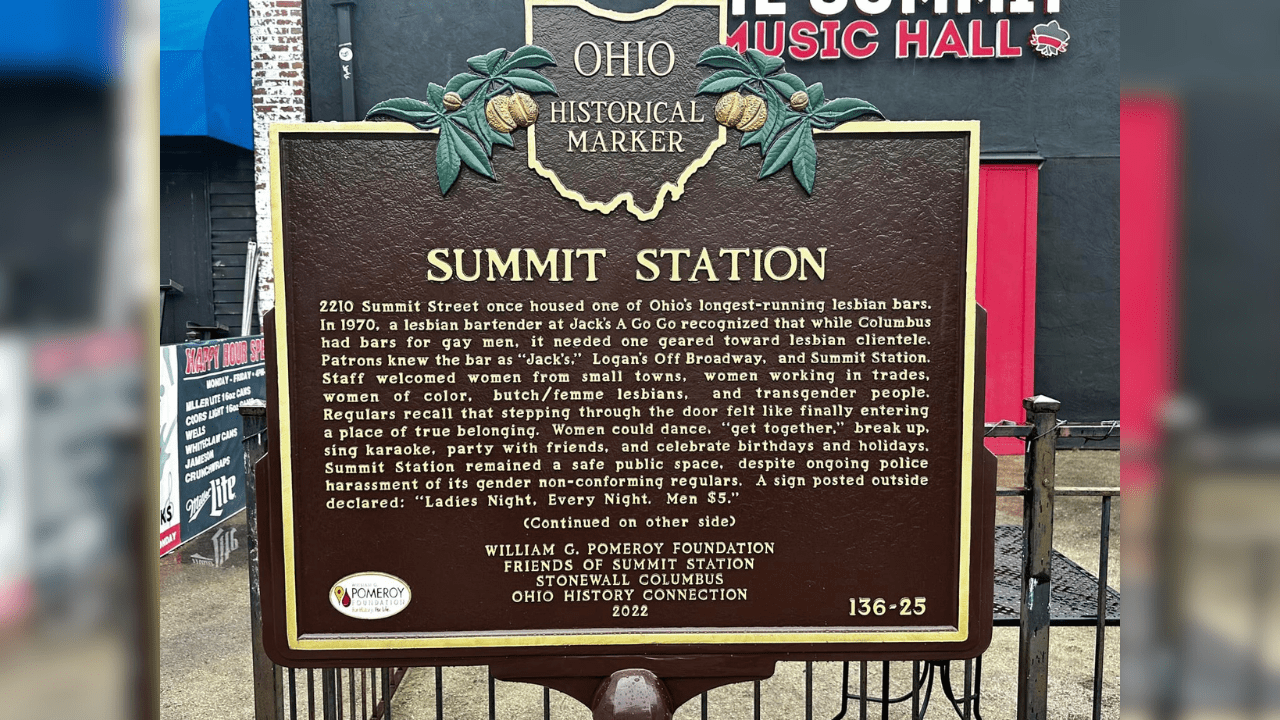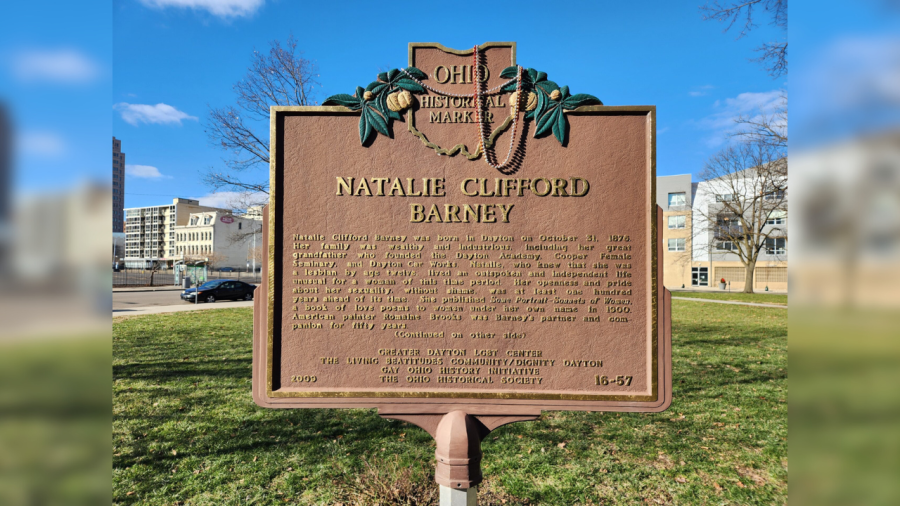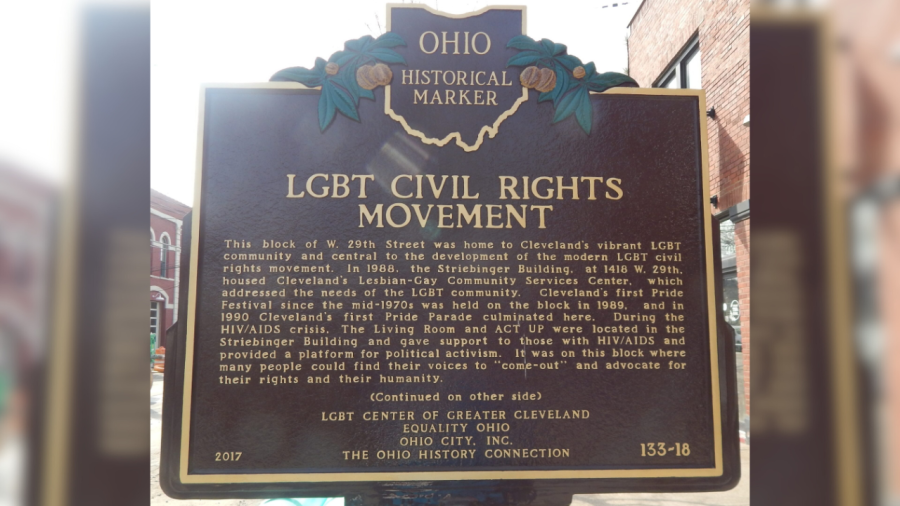COLUMBUS, Ohio (WCMH) — An Ohio grant worth nearly $250,000 to install LGBTQ+ historical markers has been canceled by DOGE.
Ohio History Connection received the $249,810 federal grant in 2022 to fund the Marking Diverse Ohio project, aimed at commemorating stories and places reflecting the impact of LGBTQ+ Ohioans in shaping the state’s history. The project was led by the organization’s Gay Ohio History Initiative and included supporting the placement of 10 LGBTQ+ historical markers.
The Elon Musk-led DOGE announced on April 3 it canceled the grant, among $25 million worth of funds awarded by the Institute of Museum and Library Services that have been cut. Ohio History Connection confirmed to NBC4 it was contacted by the institute regarding the cancellation and that the organization is working to understand the impact.
Senate Democratic Leader Nickie Antonio said the grant cut “is another attempt at rendering our LGBTQ+ existence, our history, and our contributions to society invisible.”
“Let me be clear, there is no closet big enough to force all of us back into, and no government agency can erase our existence,” said Antonio, the first member of the LGBTQ+ community elected to the Ohio General Assembly. “We are a part of the fabric of this state and country — past, present, and future.”
Research efforts to place a marker where Ohio’s first and longest-running lesbian bar once stood served as the prototype for Marking Diverse Ohio, Ohio History Connection’s site states. The sign was installed in June 2023, honoring Summit Station in Columbus’ University District as one of the first lesbian pubs in the nation that welcomed patrons for nearly four decades before closing in 2008.

The bar’s marker was not paid for by the grant, but rather a sponsorship group called Friends of Summit Station, Ohio History Connection said. No other LGBTQ+ signs have been placed by the organization since Summit’s marker installation. It’s unclear if other proposed signs were undergoing the application process.
The institute’s site said the Marking Diverse Ohio team would conduct outreach to solicit narratives for the potential signs and related oral histories, artifacts and records. The grant also called for staff members to participate in training in LGBTQ+ cultural competency and trauma-informed care to support this work.
Summit’s marker stands as the third in the state to celebrate the LGBTQ+ community and the only one in central Ohio. The first was installed near the Dayton Metro Library in 2009 to commemorate Ohio-born Natalie Clifford Barney, a lesbian writer who hosted a literary salon in Paris. In 2017, the second was placed on West 28th Street in Cleveland to honor the LGBT civil rights movement near the site of the Lesbian-Gay Community Service Center.
Megan Wood, executive director of Ohio History Connection, told NBC4 at the time of Summit’s designation that the organization bestows about 30 markers each year. Summit’s application was incredibly compelling, Wood said, especially given the Dayton library and Cleveland service center markers were the only two LGBTQ+ signs out of more than 1,800 markers statewide.
Other grants among the $25 million awarded by the institute then cut by DOGE include $265,000 for Queens College in New York to research “why BIPOC teens” read Japanese comic books, $140,000 for the University of South Carolina to create “safe spaces for LGBTQIA+ individuals” in libraries, $6.7 million for the California State Library to “enhance equitable library programs,” and more.
Musk’s department also recently slashed an Ohio State professor’s grant worth nearly $700,000 that was studying the link between cannabis use disorder and LGBTQ+ women.












